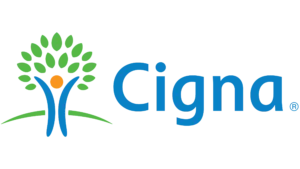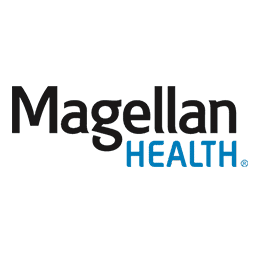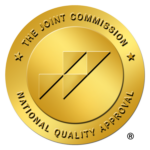Understanding Trauma Therapy
Trauma therapy is a specialized form of mental health treatment designed to help individuals process and recover from deeply distressing or life-altering experiences. These may include childhood abuse, neglect, domestic violence, loss of a loved one, or other significant emotional events. When left unaddressed, trauma can manifest in various emotional and behavioral issues, such as anxiety, depression, difficulty forming relationships, and an increased risk of developing substance use disorders.
In addiction treatment, trauma therapy plays a crucial role by addressing the underlying pain and psychological wounds that often contribute to substance use. Many individuals turn to drugs or excessive drinking as a way to cope with unresolved trauma, creating a harmful cycle of avoidance and self-destruction. By engaging in trauma therapy, individuals are given the tools to understand their past, break free from harmful patterns, and begin to heal in a safe, supportive environment.
At Full Of Life, we incorporate trauma therapy into our South Jersey addiction treatment programs to ensure holistic, lasting recovery. Our experienced clinicians use evidence-based methods—including EMDR (Eye Movement Desensitization and Reprocessing), cognitive-behavioral therapy (CBT), and somatic experiencing—to help clients process traumatic memories without becoming overwhelmed. These approaches empower individuals to build healthier coping mechanisms, increase emotional regulation, and foster self-compassion.
Our trauma-informed care model prioritizes safety, trust, and empowerment. We understand that healing from trauma requires more than just clinical expertise—it requires a compassionate, individualized approach that honors each person’s story. At Full Of Life, every client is met with understanding and support as they navigate their path toward recovery and emotional well-being.

The Impact of Trauma on Mental Health and Addiction
Trauma is a complex psychological and behavioral response to deeply distressing or disturbing experiences that overwhelm an individual’s ability to cope. According to the National Council for Mental Wellbeing, approximately 70% of U.S. adults—more than 223 million people—have experienced some type of traumatic event at least once in their lives. Trauma can be caused by a wide range of experiences, and its effects are highly subjective. What may be traumatic for one person might not be for another, depending on personal history, resilience, and available support systems.
Common sources of trauma include physical or sexual assault, bullying, domestic violence, the death of a loved one, parental neglect or abandonment, natural disasters, chronic illness, divorce, or even secondhand trauma such as witnessing violence. Children are especially vulnerable; the CDC’s Adverse Childhood Experiences (ACEs) study found that one in six adults has experienced four or more types of childhood trauma—strongly correlating with increased risks for depression, substance abuse, and suicide.
The Effects of Trauma
When someone undergoes a traumatic experience, immediate emotional responses can include shock, denial, fear, and anger. Over time, unresolved trauma can lead to long-term psychological and physiological effects. The National Institute of Mental Health (NIMH) reports that trauma increases the risk of developing disorders such as post-traumatic stress disorder (PTSD), anxiety, and depression. Individuals may also experience symptoms such as emotional numbness, flashbacks, insomnia, nightmares, chronic headaches, gastrointestinal distress, and significant disruptions in interpersonal relationships. Studies have also linked trauma to long-term changes in brain structure, particularly in areas related to memory, emotional regulation, and stress response.
To cope with these overwhelming symptoms, many individuals turn to substances like drugs or alcohol to numb emotional pain—leading to a dangerous cycle of self-medication and addiction. According to the Substance Abuse and Mental Health Services Administration (SAMHSA), approximately 75% of individuals in substance abuse treatment report histories of trauma. At Full Of Life, we recognize that addiction is often a symptom of deeper, unhealed emotional wounds. That’s why our trauma-informed approach prioritizes uncovering and addressing the root causes of addiction. By helping clients process and heal from past trauma, we aim to support not just sobriety—but long-term emotional recovery and personal transformation.
What Are The Signs of Addiction Due to Trauma & PTSD?
When trauma or PTSD (Post-Traumatic Stress Disorder) goes untreated, individuals may turn to drugs or alcohol to cope with overwhelming emotions, intrusive memories, or physical symptoms. This form of self-medication can quickly lead to dependence or addiction. Recognizing the signs of addiction related to trauma is critical for early intervention and long-term healing.
Common signs of trauma-related addiction include:
-
Using substances to numb emotional pain: Individuals may rely on alcohol or drugs to escape flashbacks, nightmares, or chronic anxiety caused by traumatic memories.
-
Avoidance behaviors: Avoiding people, places, or conversations related to the traumatic event, while simultaneously using substances to suppress these triggers.
-
Heightened reactivity: Increased irritability, aggression, or mood swings—especially when not using—can signal both PTSD and withdrawal symptoms.
-
Risky or impulsive behavior: Taking dangerous risks under the influence, or using substances in unsafe environments, is common in trauma survivors attempting to regain a sense of control.
-
Sleep disturbances: Insomnia, frequent nightmares, or night terrors—often exacerbated by substance use—are hallmark symptoms of both PTSD and addiction.
-
Social withdrawal: Isolation from friends, family, and social support systems, often out of shame, fear, or the desire to hide substance use.
-
Tolerance and dependence: Increasing the amount or frequency of use to achieve the same effect, or experiencing withdrawal symptoms without the substance.
-
Neglecting responsibilities: Failing to keep up with work, school, or home life due to substance use or emotional instability.
According to the U.S. Department of Veterans Affairs, about 46% of individuals with PTSD also meet the criteria for a substance use disorder, and the risk is even higher among veterans and those with multiple traumas. If you or a loved one are displaying these signs, especially after experiencing trauma, it’s essential to seek integrated treatment that addresses both the addiction and the underlying emotional wounds.
At Full Of Life, our trauma-informed addiction specialists work closely with each individual to understand the full scope of their experience and provide comprehensive care that heals both body and mind.
What to Expect During Comprehensive Trauma Therapy in Marlton, NJ
Trauma therapy programs in Marlton, NJ are specialized mental health and addiction treatment services designed to help individuals heal from the deep psychological wounds caused by trauma. Whether the trauma stems from childhood abuse, military combat, domestic violence, or a life-threatening event, unresolved trauma can significantly impact emotional regulation, behavior, and overall quality of life. At Full Of Life, our trauma therapy programs aim to address the root causes of addiction and mental health disorders by helping clients process these painful experiences and develop healthier, more sustainable coping strategies.
Research has consistently shown that trauma is closely linked to substance use disorders. Many individuals use drugs or alcohol to numb distressing memories, manage anxiety, or escape overwhelming emotions. By targeting the core trauma rather than just the symptoms, trauma therapy empowers clients to build emotional resilience, reduce triggers, and move toward lasting recovery. Our evidence-based programs are rooted in trauma-informed care principles, ensuring that every client feels safe, supported, and empowered throughout their healing journey.
Our trauma therapy in Marlton, NJ incorporate a wide variety of therapeutic modalities, each designed to address the complex interplay between trauma, thought patterns, and behavior.
Our Marlton Trauma Therapy Includes
-
EMDR (Eye Movement Desensitization and Reprocessing): Helps reprocess traumatic memories in a way that reduces their emotional impact.
-
CBT (Cognitive Behavioral Therapy): Identifies and reframes negative thought patterns linked to trauma and addiction.
-
DBT (Dialectical Behavior Therapy): Focuses on emotional regulation, distress tolerance, and interpersonal effectiveness.
-
Trauma-Focused Group Therapy: Offers peer support and shared healing experiences in a guided therapeutic environment.
-
Exposure Therapy: Gradual, controlled exposure to trauma-related memories or triggers to reduce fear and avoidance.
-
Narrative Therapy: Encourages individuals to re-author their life story from a place of strength and healing.
-
Somatic Experiencing and Mindfulness Practices: Help reconnect the mind and body to release trauma stored in the nervous system.
The specific therapies used in a client’s treatment plan are determined by a thorough assessment of their personal history, the nature of their trauma, co-occurring mental health conditions, and any current medication protocols. At Full Of Life, we create fully individualized treatment plans that reflect each client’s unique needs, goals, and stage of recovery. Our goal is to not only treat the symptoms of trauma and addiction but to foster deep, lasting healing that empowers clients to reclaim their lives.
The Benefits Of Trauma Therapy
Trauma therapy offers a powerful path to healing for individuals who have experienced distressing or life-altering events. Left untreated, trauma can deeply impact mental, emotional, and even physical health. However, with the right therapeutic support, individuals can not only process these experiences but also develop the tools they need to lead healthier, more fulfilling lives.
One of the key benefits of trauma therapy is the ability to manage overwhelming emotions. Individuals often experience intense anxiety, anger, sadness, or numbness as a result of trauma. Through evidence-based therapies like EMDR and DBT, clients learn to identify emotional triggers and develop effective strategies for coping with them—without resorting to substance use or harmful behaviors.
Reduction in PTSD and Mental Health Symptoms
Trauma therapy has been shown to significantly reduce symptoms of PTSD, depression, and anxiety. A study published in the Journal of Traumatic Stress found that participants in trauma-focused therapy experienced a 60–80% reduction in PTSD symptoms. This can lead to improved sleep, fewer flashbacks, reduced panic attacks, and a more stable mood overall.
Stronger Relationships and Social Functioning
Trauma often leads to isolation, mistrust, and difficulty maintaining healthy relationships. By working through traumatic experiences in a safe, supportive setting, individuals can begin to rebuild trust, improve communication, and form stronger connections with others. Group therapy also offers a sense of community and validation through shared experiences.
Greater Self-Awareness and Empowerment
Trauma therapy helps individuals understand how past events influence their present behaviors and thought patterns. This insight promotes personal growth, self-compassion, and the confidence to make positive changes. Many clients report feeling more in control of their lives, recovering from any potential substance abuse, and knowing they are better equipped to handle future challenges after completing trauma therapy.
At Full Of Life, we believe that healing from trauma is a critical step toward lasting recovery. Our trauma-informed approach ensures that every individual receives compassionate, personalized care designed to foster resilience, self-discovery, and hope.

Does Insurance Cover Trauma Therapy Programs?
Insurance often covers trauma therapy and related addiction treatment services, thanks to federal protections under the Affordable Care Act (ACA) and the Mental Health Parity and Addiction Equity Act (MHPAEA). These laws require most insurance plans to provide equal coverage for mental health and substance use disorders as they do for medical care.This means most mental health plans typically include therapies like EMDR, CBT, and other trauma-focused treatments. However, your specific plan, provider network, and medical necessity ultimately determine the exact coverage.
At Full Of Life, we understand that navigating insurance can be overwhelming, especially when seeking care for trauma and addiction. That’s why we offer support with verifying insurance benefits and obtaining pre-authorizations if needed. Most private insurance plans—including PPOs, HMOs, and employer-sponsored plans—cover multiple levels of care such as outpatient trauma therapy, intensive outpatient programs (IOP), and dual diagnosis treatment. also offer mental health and trauma-related services, though coverage details vary by state.
To get started, here are a few important things to check:
-
Is the trauma therapist or treatment center in-network?
-
Are there any session limits or pre-authorization requirements?
-
What are your copay, deductible, or coinsurance responsibilities?
-
Does your plan cover dual diagnosis treatment for co-occurring trauma and addiction?
If you or a loved one are struggling with an addiction or mental health disorder, trauma may be the underlying issue. Here at Full Of Life, our trauma-trained clinicians can help you identify and treat the traumatic events that have been impacting your life. If you would like to learn more about our programs and how we can help you, then contact our admissions team today.






















